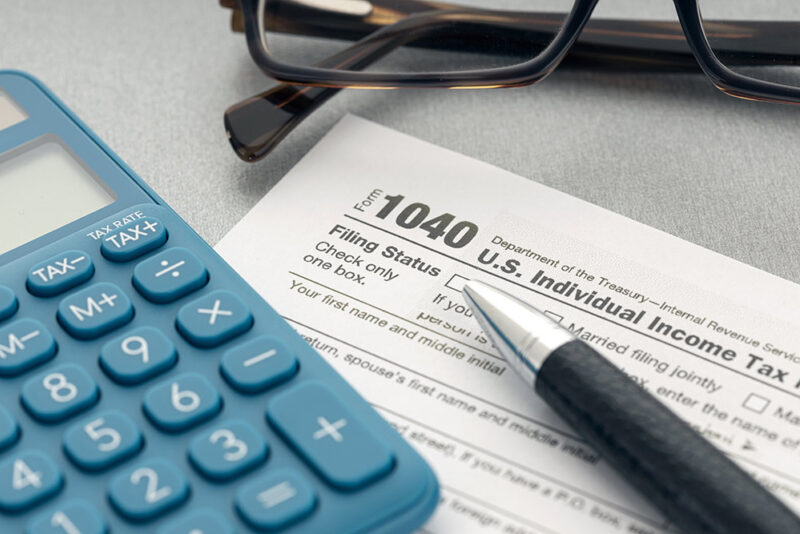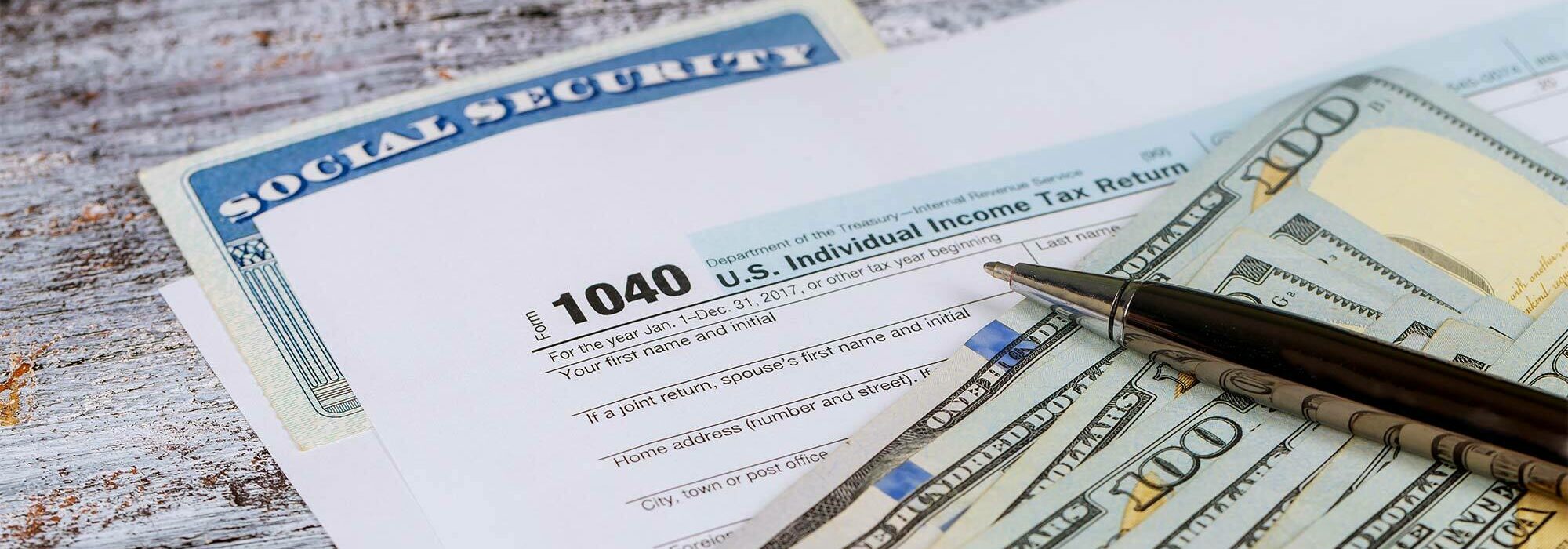Article Excerpt
If you don’t pay your property tax bill or other taxes, you could end up with a tax lien on your home. Learn more about what to do if this happens.
Overdue taxes are a form of debt. You may have to pay penalties and interest if you don’t pay your taxes on time. You also risk having a tax authority like the IRS file a lien. When a creditor files a lien, it becomes part of the public record and can hurt your credit. Some types of liens attach directly to specific assets. This includes your home.
A lien that is attached to your home affects your ability to sell or refinance. Tax liens can be particularly troublesome since they take precedence over other types of liens. If you have a tax lien on your property because of unpaid property tax or other taxes, you need to act quickly to get it resolved.
Read on to learn more about tax liens and how they work.
What is a tax lien?
A “lien” is a creditor’s legal right to a debtor’s property. It is not a “possessory” right, meaning that the creditor does not have the right to use the property without the debtor’s permission. The debtor is still the owner of the property. The lien just sets some conditions on their ownership.
Some types of liens are attached to particular assets. The debtor must agree that an asset will serve as collateral for a loan. When you take out a loan to buy a car, for example, the car secures the debt. The same thing happens when you take out a mortgage. The home that you buy secures the mortgage. The lender has a lien on the home. If you do not make timely mortgage payments, the lender may eventually have the right to foreclose.

A tax lien results from failing to pay taxes on time. Tax agencies have the authority to file a lien against taxpayers once they have been delinquent for a minimum amount of time. Most tax liens do not attach to specific assets. This means that the tax agency can seize any asset that is not exempt by law to cover the tax bill. If a tax lien is attached to an asset, such as your home, the agency will come for that asset.
Almost any tax agency can create a lien, but only a few types of tax liens will attach to your home. Your home is exempt from most forms of debt collection. Exceptions include your mortgage and many tax debts.
Property Tax
In Texas, property taxes are one of the main sources of funding for schools and various other public functions. Each county has a property tax appraisal district that collects property taxes from homeowners in their jurisdiction. Property tax liens are one of the main types of tax liens in Texas that attach to your home.
Escrow accounts help most homeowners make tax payments on time with hardly any work on their part.
» READ MORE: Should You Use an Escrow Account for Property Taxes?
Other State Taxes
Texas has no state income tax. Aside from property tax, most taxes are paid by businesses. You pay sales tax with most purchases, but the business is responsible for sending the money to the state. Tax liens may result from the failure to pay these types of taxes.
Federal Income Tax
The IRS has an elaborate system for notifying taxpayers about unpaid taxes. After giving notice, the IRS may file a tax lien with the local county clerk. While this type of lien does not directly attach to a taxpayer’s home, the IRS might be able to seize your home along with other property to satisfy the tax debt.

Other Federal Taxes
Other federal taxes may also result in tax liens, although they are probably not as common as liens filed for income tax arrearages. The federal estate tax, for example, can affect real estate, although it only applies to rather large inheritances.
When does a tax lien attach to a home?
A tax lien for nonpayment of property tax attaches to the property as soon as the tax agency files the lien. In most counties, property tax for a particular year is due by January 31 of the following year. It is past due on February 1, and the tax appraisal district has the legal right to file a lien.
What happens if I have a tax lien on my home?
The lien will remain attached to your home until you either pay off the taxes you owe, plus penalties and interest, or you reach an agreement with the tax agency. They will then have to file a release of lien.
While the lien is in force, the tax agency will have the authority to foreclose on your home. They will have to file a lawsuit known as a “judicial foreclosure” in order to do this. You will also have an opportunity to present a defense in court or pay the taxes you owe. If the court allows foreclosure, the tax agency must give you written notice of when the sale will take place and publish a notice in the newspaper.
You almost certainly will not be able to sell your home or refinance your mortgage while it is subject to a tax lien. Since the lien gives a tax agency the power to foreclose, your home will not look like a good investment.
![Photo by eFile989 on Flickr [Creative Commons] clay figurine holding onto a clock hand](/images/articles/_generalPhotoStandard/clay-figurine-clock.jpg)
Photo by eFile989 on Flickr [Creative Commons]
How does a tax lien affect a mortgage?
Having a tax lien attached to your home will make it all but impossible to refinance or get a home equity loan. Part of this is because most tax liens take priority over all other liens. The lien associated with your mortgage usually has first priority when it comes to foreclosure and other means of enforcement. Other loans secured by your home, such as a home equity loan, have lower priority. Tax authorities with liens attached to a property, however, get the highest priority.
What can I do if I have a tax lien on my property?
The most straightforward way to get rid of a tax lien is to pay what you owe. Even if you don’t have the full amount, you can try to work out a settlement or payment plan with the appraisal district or IRS.
As a general rule, tax agencies prefer getting some money to getting none. They don’t want to foreclose on your home, because that would mean they are responsible for selling it. That’s not what they usually do. They would rather get part of what you owe, or get a payment plan so that you can pay off what you owe over time. A tax agency probably isn’t going to insist on foreclosure unless they’ve already given you several chances.
Homeownership is a responsibility (but well worth it!).
Homeownership brings various responsibilities, including property tax payments. The home mortgage professionals at The Wood Group of Fairway are here to answer your questions and talk about your best options. Get started with our easy online questionnaire to see what you qualify for!



